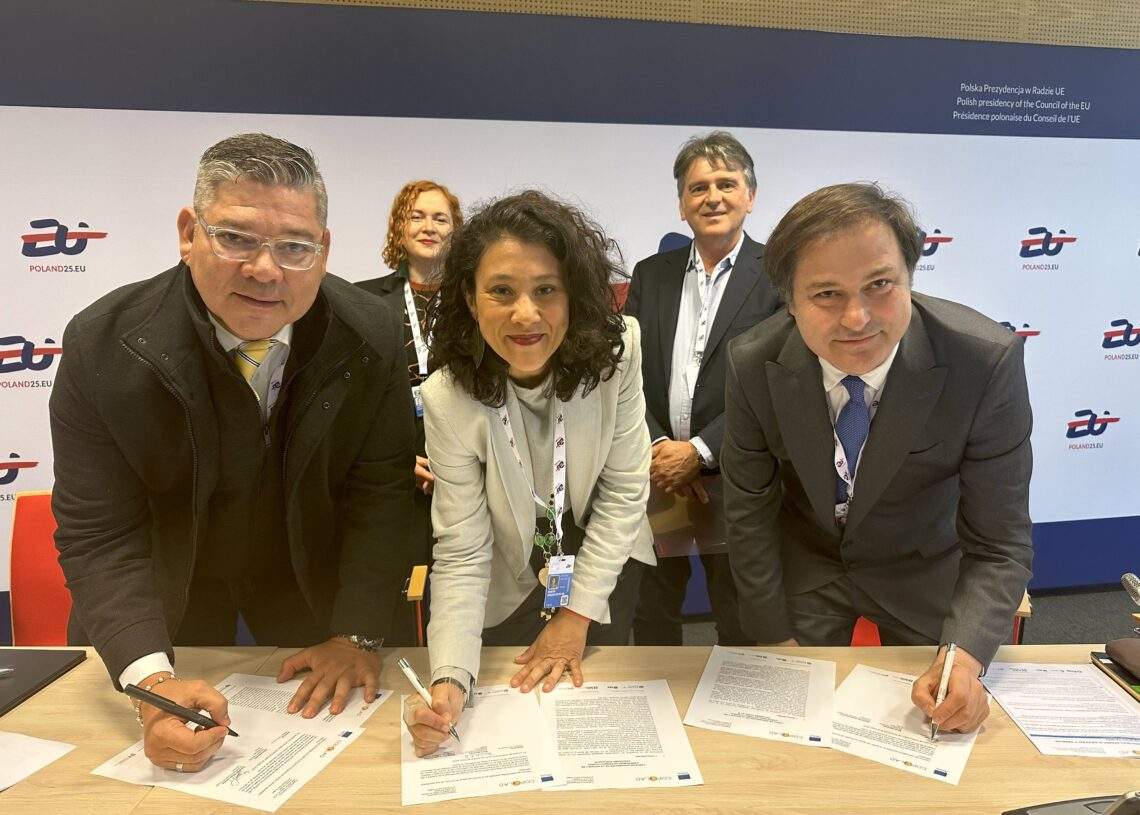Brazil and Colombia signed an agreement with COPOLAD III programme to regulate the social use of assets seized from drug trafficking.
Under this agreement, COPOLAD III will support research to develop a regulatory framework defining how funds confiscated from drug trafficking can be used to support actions that promote sustainable development. The document was signed in Warsaw, Poland, during the COPOLAD 2025 Annual Meeting.
“The objective of this initiative is to support the formulation of regulations, legal frameworks and procedures that enable the redefinition and social use of assets seized from drug trafficking, directing their use towards initiatives aligned with the National Drug Policies of Colombia and Brazil — in particular, those linked to alternative development, social inclusion, territorial rehabilitation, and the strengthening of the social fabric through strategic asset management,” explained Massimo Meccheri, Technical Expert of the COPOLAD III Programme.
As part of its support, COPOLAD III will assign three consultants (one for each country and one binational), and will organise workshops, study visits and a final seminar with the participation of experts from both Europe and Latin America.
This joint initiative in Brazil and Colombia will begin this month and run until October 2025. More broadly, COPOLAD III also supports similar actions for the social use of criminal assets in other countries across Latin America, including Costa Rica and Uruguay.
“The territories are not alone, and life deserves to be defended”
Marta Machado, Head of the National Secretariat for Drug Policy and Asset Management (SENAD), signed the agreement on behalf of Brazil’s Ministry of Justice and Public Security. She emphasised that the agreement will help the country make further progress in asset seizure efforts in the fight against drug trafficking — an area where Brazil is already achieving significant results.
“With this agreement, we will be able to build on the experience of countries like Italy in the social reuse of seized assets, and return value to communities. This is part of a strategy that integrates sustainable alternative development into drug policy”, Machado stated.
On behalf of Colombia, Alexander Rivera, Director of Drug Policy at the Ministry of Justice, stressed the importance of this support, noting that Colombia’s approach to drug policy prioritises life, human rights and environmental protection — rather than focusing solely on destroying laboratories or intercepting drug shipments.
“Transforming drug trafficking assets into schools, community centres or productive projects means reclaiming territories from fear and returning them to hope. This support from COPOLAD III and the European Union allows us to keep believing that it is possible, that the territories are not alone, and that life, in all its forms, is worth defending,” said Rivera.
This binational initiative is aligned with the strategic priorities of both countries in the field of drug policy, and aims to ensure the sustainability of its outcomes beyond the duration of the intervention. It is fully in line with the principles of human rights, gender equality and sustainable development promoted by the European Union.






